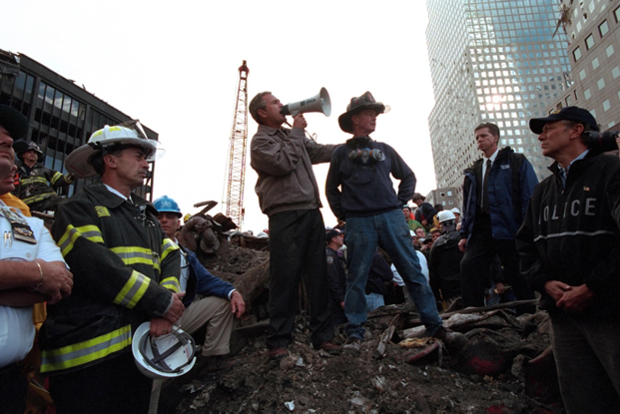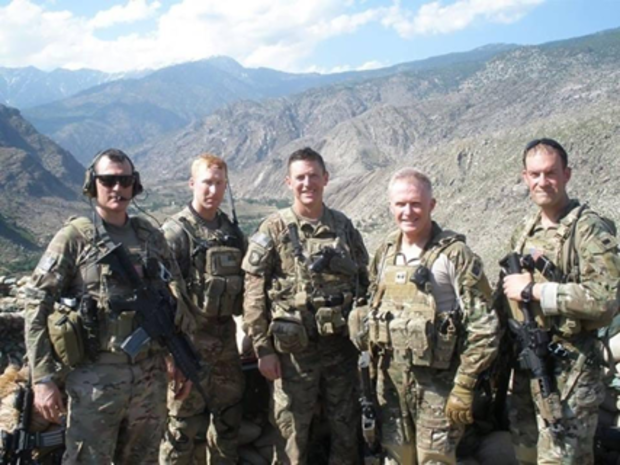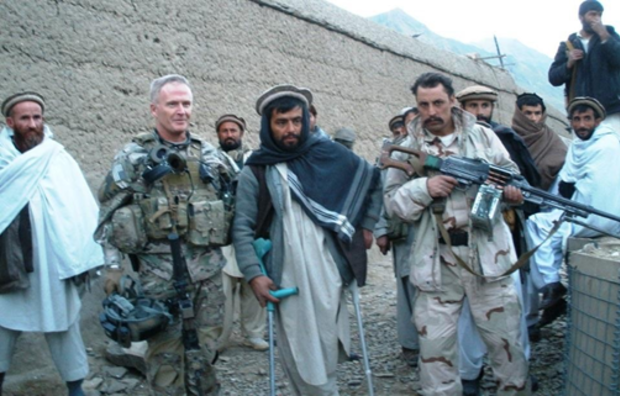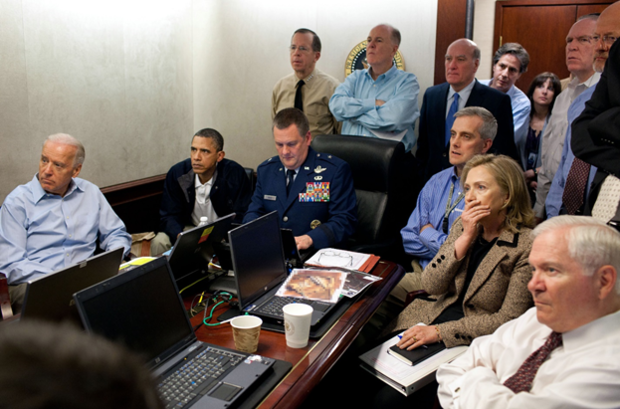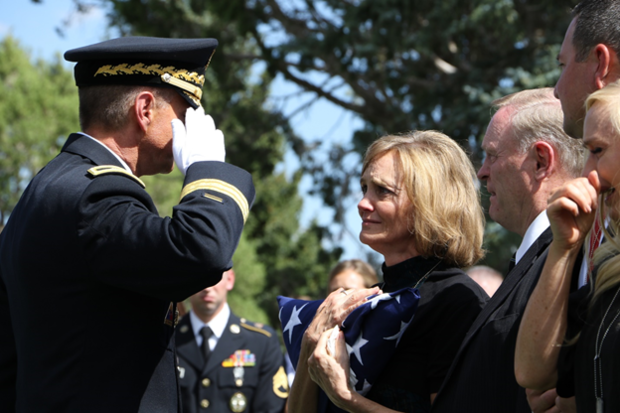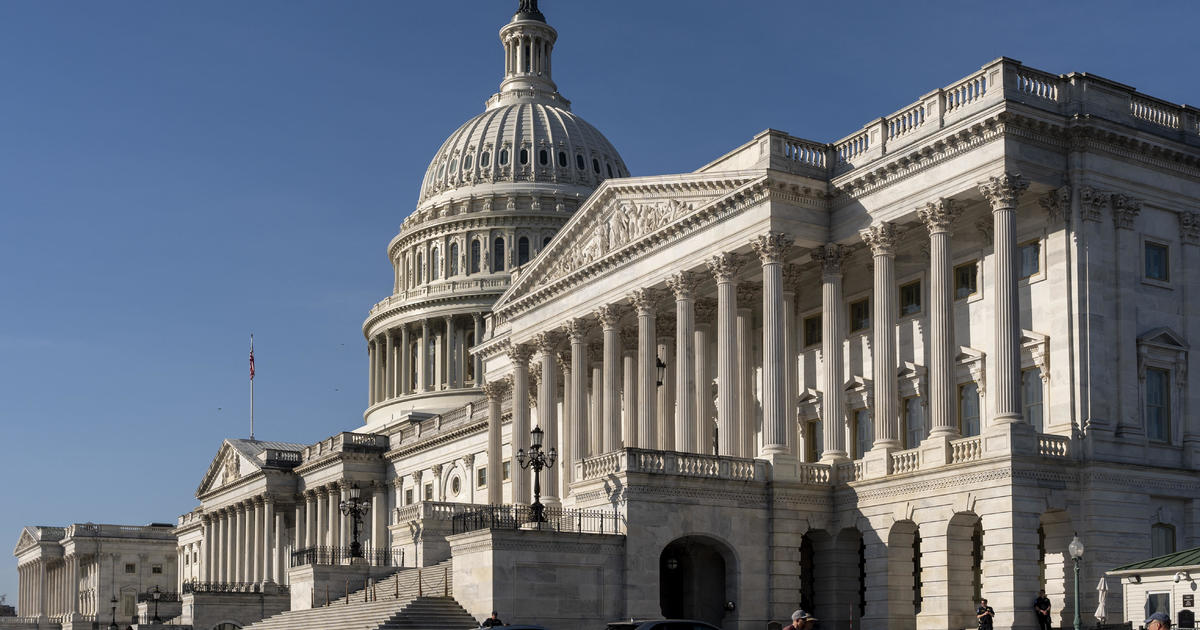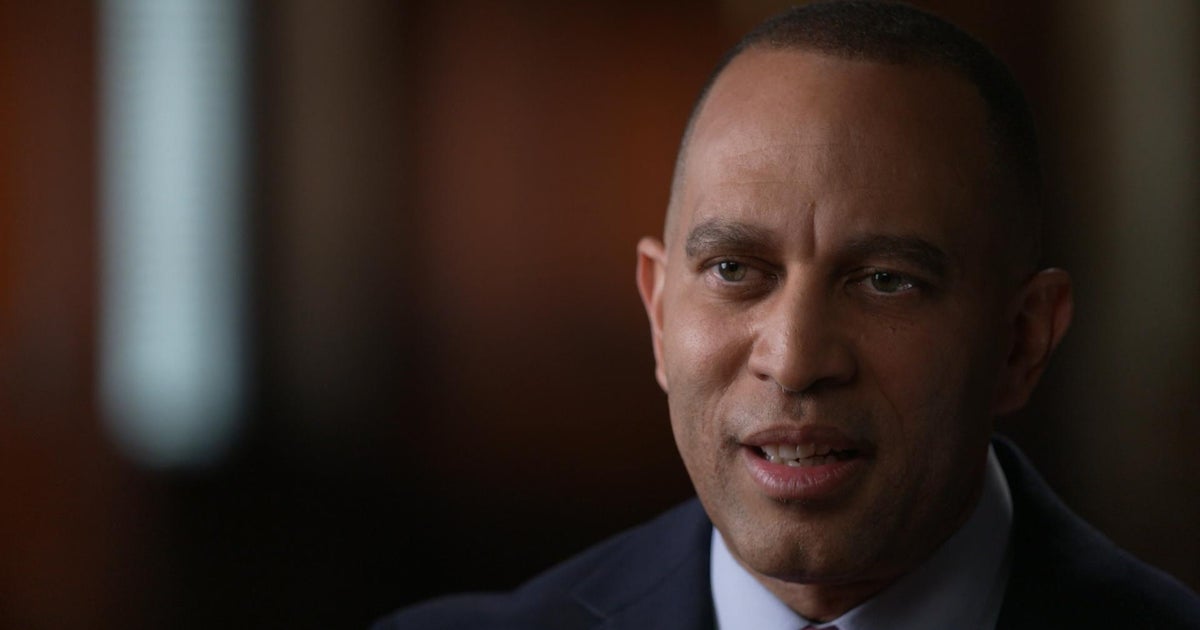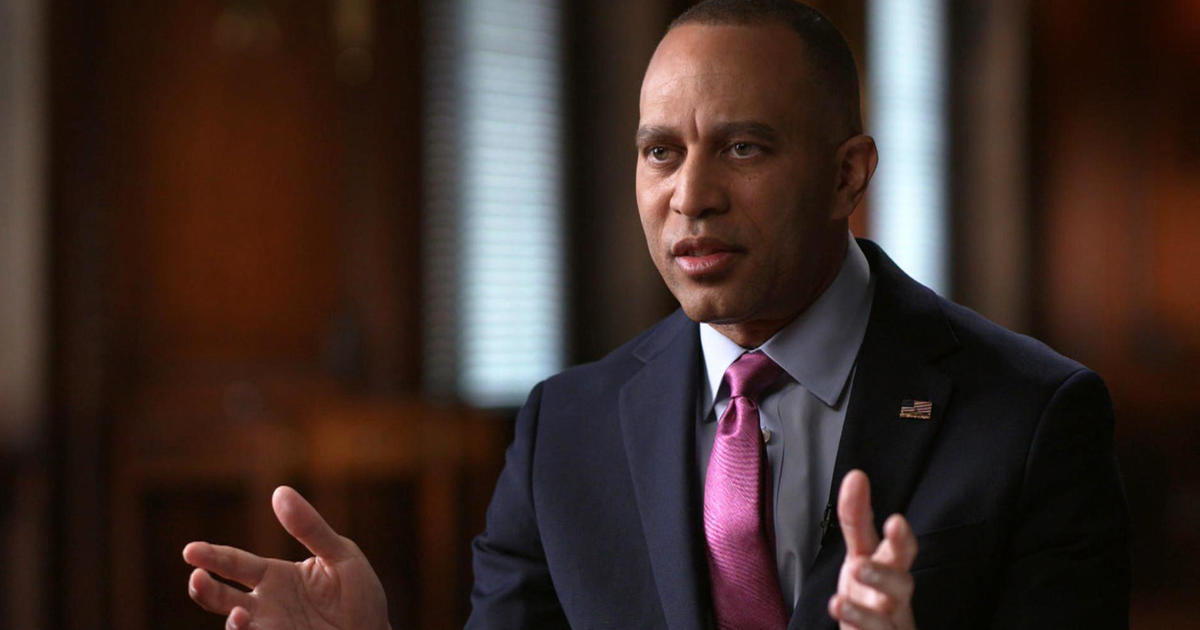Four-star general reflects on military career after 9/11 attacks
Just three days after the September 11 terrorist attacks, in what became an iconic moment, former President George W. Bush made a promise that would soon unleash U.S. military might on al Qaeda and the Taliban.
"I can't hear you!" yelled a first responder at the site of Ground Zero.
"I can hear you! The rest of the world hears you," replied Mr. Bush. "And the people who knocked these buildings down will hear all of us soon."
Less than a month after 9/11, the United States invaded Afghanistan, where al Qaeda planned the attacks. The war lasted nearly 20 years and became America's longest war. Retired Four-Star General, and former head of special operations, Raymond "Tony" Thomas, has served in Afghanistan almost every year since the attacks.
"How did 9/11 change the course of your career? "asked CBS News senior investigative correspondent Catherine Herridge.
"Oh, dramatically," said Thomas.
When Thomas got to Afghanistan in December 2001, he and his team settled into Bagram Air Base and wanted to raise the American flag, but Pentagon leadership told them that their time would be short in Afghanistan.
"We aren't staying. We aren't occupying, and we aren't nation building," Thomas recalled. "And then we proceeded to do all the above."
Meanwhile, al Qaeda leader Osama Bin Laden quickly slipped through the rugged mountains of Tora Bora into neighboring Pakistan, and with him, the radical ideology that spawned a network of global terror franchises.
"How much of a threat was Abu Musab al-Zarqawi, the leader of al Qaeda in Iraq?" asked Herridge.
"Huge, and arguably one that we didn't discern early on," said Thomas.
"Another example of how the threat metastasized after 9/11?" asked Herridge.
"Absolutely. Yeah, because that wasn't resident in Iraq when we first got there," Thomas said.
The mission prevented another 9/11 but there were close calls — the 2009 underwear bomb that nearly brought down a jet over Detroit, and the following year, a car bomb that failed to explode in New York's Times Square.
"And the ideology was strong and intent on conducting additional attacks against the United States and our, and our allies," said Thomas.
Ten years into the war on terror, Thomas played a key role in the raid that killed bin Laden. Thomas was synched-in electronically with the White House Situation Room as then-President Obama and his team watched the elite Navy Seals clear the target — a heavily fortified compound in Abbottabad, Pakistan.
"Commander Ford in Pakistan, on the satellite radio, made the call, 'For God and country,'" said Thomas. "'Geronimo, Geronimo, Geronimo,' which was our code word for, 'We got him.'"
"Was the death of Osama Bin Laden an inflection point in the War on Terror?" asked Herridge.
"It absolutely was, so important to get the leader, but we still had a lotta work left to do," Thomas replied.
Three years later, in Syria, ISIS terrorists held Americans hostage including journalists and an aid worker Kayla Mueller – none in the group survived. Thomas recounts how close special operators came to freeing them.
"The Kayla Mueller episode would be the low point," said Thomas. "And I think there was one or two other American hostages that we thought were being held. We conducted a raid and discovered that they had just moved."
Those losses stay with Thomas. He shared the story of a 27-year-old special operations engineer, Aaron Rhett Butler, who killed in Afghanistan by a crude bomb.
"I'll never forget the mom, who when I expressed my condolences to her gripped my hand and looked me right in the eyes and said, 'Stay on this and finish it,'" recalled Thomas.
CBS News spoke with Thomas before 13 service members died while evacuating Americans and Afghans from the Kabul airport. Even then, Thomas feared the ungoverned space.
"We have now given up an area of prime access and intelligence in Afghanistan. And we've maybe emboldened some adversaries," said Thomas. "The future will determine how safe we actually are."
Only in recent years has the 9/11 story come full circle for Thomas.
"I don't think I physically got to New York, and what I consider to be hallowed ground, until about the 2014, 2015 time frame," said Thomas. "Again I remember just a rush of emotions. This is where it all began."
